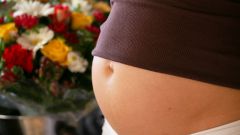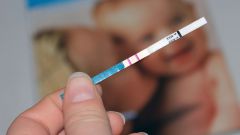You need to determine the time for conception
To find out when you can conceive a baby, you have to analyze your menstrual cycle for a long time, it is better to take the period of not less than 6-12 months. And remember that you will not be able to calculate if they took contraceptives or other hormonal medications during this period. "Clean", suitable for calculations, is the time when the body is a similar tool is not influenced.
If your cycle is not very regular, you can only determine the probability, calculated days will be very inaccurate. Try to use additional means to determine the auspicious days. Ideally, a fairly accurate calculation can be made if variations in your cycle did not exceed one or maximum two days.
How to make payments
Look at the cycle over the reporting period was the longest and which the shortest. Now subtract from short term 18. You get the number from which conception is possible. Then subtract from the longest period 11. It is the day after which to conceive a child is unlikely.
For example, if your cycle varied from 28 to 32 days, you will get numbers 10 and 21. It turns out that you can get pregnant between the 10th and 21st day. It should be recalled that the first day of the cycle is considered the day of onset of menses.
Is it possible to conceive in the unfavorable period?
However, it is impossible to predict when ovulation will happen. In addition, the sperm got into a woman's body, remain active and can fertilize an egg for several days after that.
Logically, during and immediately after menstruation, a few days before they get pregnant woman cannot: if ready ovum awaiting fertilization in the uterus is not present, and to conceive does not. However, the nature may throw a surprise.
First, women have two ovaries, and one cycle can reach two eggs. If you re ovulation occurs, fertilization can occur later than "expected", even before the menstruation.
Second, if a woman is healthy, but not engaged in regular sexual life, the body may react to certain substances contained in the sperm, and run the "unscheduled" ovulation, since this honour. But women who have sex regularly, like usually happens.
In the first days after menstruation and even during menstruation also can't be a hundred percent confident in a negative result. Sperm can live for several days and wait for the release of an egg, which sometimes ripens prematurely.





